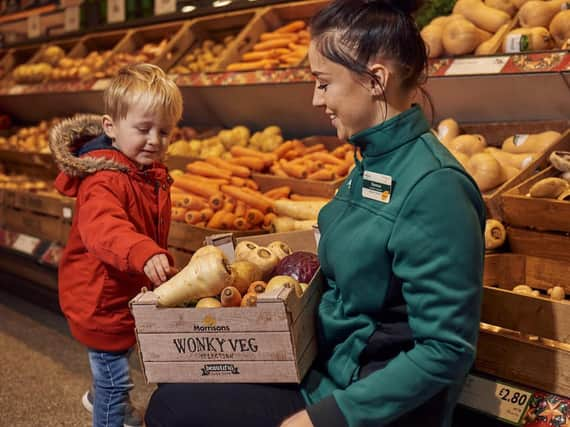Online grocery sales soar to record levels


The latest data from NielsenIQ revealed that the online share of grocery sales doubled to 16 per cent in January, up from 8 per cent during the same month last year. This is the highest level on record, exceeding the extraordinary levels last seen in June 2020, when share peaked at 14 per cent.
Morrisons was the only big four grocer to gain market share over the last 12 weeks. Lidl and Iceland also put in a strong performance.
Advertisement
Hide AdAdvertisement
Hide AdData from NielsenIQ showed that one in three of all British households shopped online (9.3 million) in January and 4.1 million of these shoppers were brand new to the channel, the highest number of new online shoppers on record.
The substantial growth of online sales follows an exceptional January for supermarkets, in which total till sales grew by 10.6 per cent, also the highest growth since June 2020.
NielsenIQ said this is an unusually strong grocery sales growth for January, which has typically been a month of subdued growth following the festive period.
Mike Watkins, Nielsen’s UK head of retailer and business insight, said: “It has been an extraordinary January for British supermarkets.
Advertisement
Hide AdAdvertisement
Hide Ad“This was spearheaded by the exceptional growth in online grocery, in which there were 24 million online shops made – up from just 11 million last January.
“This growth has once again been driven by increased demand throughout the third lockdown as shoppers shifted spend away from stores where overall growth was flat. Retailers were able to flex their capacity in home delivery and increasingly in click and collect to meet the unprecedented number of new online shoppers.”
Looking forwards, NielsenIQ anticipates that this level of spending will remain consistent throughout February.
“However, we will see growth fall in March given the comparative 21 per cent growth of last March, and we estimate that growth for the full quarter will level out at between 1 and 3 per cent,” said Mr Watkins.
Advertisement
Hide AdAdvertisement
Hide AdThe fall in March will reflect the start of the first national lockdown on March 24, 2000.
Analyst Clive Black at Shore Capital said: “Lockdown 3.0 in England, dismal weather, dark days, and after whatever festivities the British enjoyed through Christmas, the mood was undoubtedly low in January; less of the stoical Blitz-like spirit that characterised 1.0.
“With folks staying in, down and worried about biosecurity, the key feature of the Nielsen update for January is the strength of the online grocery channel, with 16 per cent participation recorded; a channel now demonstrably more profitable for the trade.
“Within and between the players, Lidl stands out as the fastest growing, to its credit, albeit the margins are wafer thin at the German discount supermarket.
Advertisement
Hide AdAdvertisement
Hide Ad“Morrison sustains the fastest overall sales momentum of the Big Four superstore plays; all of which still see elevated revenues. We expect trading momentum to reverse with unlocking from March and in the face of tough sales comparatives. Nevertheless, stronger cash flows should continue.”